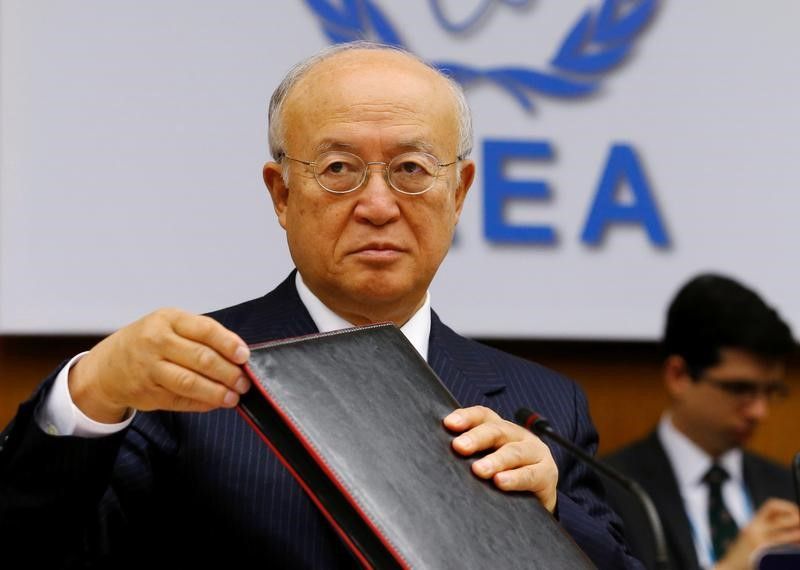
Iran has shown commitment to the deal on its nuclear program agreed with world powers, the head of the United Nations atomic energy watchdog said on Sunday, following complaints by Tehran over what it calls a U.S. violation of the accord.
The White House said on Thursday that a bill extending U.S. sanctions against Iran for 10 years would become law without President Barack Obama's signature, adding this would not affect overall implementation of the nuclear agreement.
"We are satisfied with the implementation of the (agreement) and hope that this process will continue," IAEA director general Yukiya Amano was quoted as telling reporters in Tehran by the IRNA news agency. "Iran has been committed to its engagement so far and this is important," Amano was quoted as saying after meeting Iran's nuclear energy chief, Ali Akbar Salehi.
In response to the U.S. sanctions extension, Iran ordered its scientists last week to start developing systems for nuclear-powered marine vessels.
That action is expected to worsen tensions with Washington, already heightened by a promise by U.S. President-elect Donald Trump's to scrap the deal.
Iranian President Hassan Rouhani met Amano on Sunday and "expressed hope Iran and the IAEA will be able to have good technical cooperation on nuclear propulsion for transports," the semi-official Fars news agency said.
Iran's nuclear energy chief, Ali Akbar Salehi, said he presented the nuclear propulsion project to Amano during their meeting, adding that Iran would provide details of it in three months, IRNA reported.
Nuclear experts have said that Iran's move, if carried out, would probably require Tehran to enrich uranium to a fissile purity above the maximum level set in the nuclear deal to allay fears of the country building an atomic bomb.
Salehi said the fuel used for nuclear propulsion could range between 5 and 90 percent in enrichment, but added: "We will certainly act within the framework of the (agreement)," IRNA reported.
Under the 2015 deal, Iran curbed its nuclear fuel production activities in exchange for relief from economic sanctions. Tehran is not allowed to enrich uranium above a 3.67 percent purity for 15 years, a level unlikely to be enough to run such vessels, according to experts.
Iran on Saturday also requested a meeting of a commission comprising representatives of signatories to the accord that is overseeing its implementation.
Uncommon Knowledge
Newsweek is committed to challenging conventional wisdom and finding connections in the search for common ground.
Newsweek is committed to challenging conventional wisdom and finding connections in the search for common ground.





